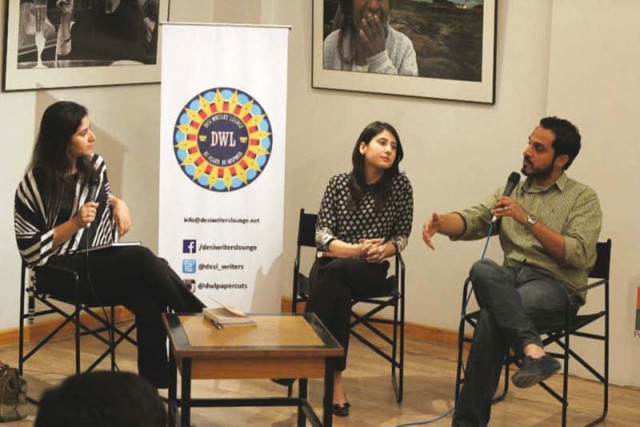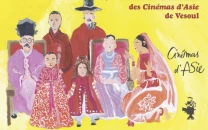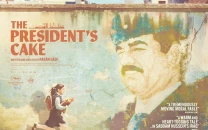Talking Partition, Punjabi folklore
Writers Anam Zakaria, Haroon Khalid trace roots of communal violence, extremism in Indian subcontinent

Zakaria and Khalid assist one another when it comes to field research. PHOTO: AYESHA MIR/EXPRESS
The dynamic couple of writers Anam Zakaria and Haroon Khalid flew in to Karachi to partake in an engaging discussion on their published works about Partition and Punjabi folklore at T2F on Friday.
The literary power couple covered a diverse range of subjects in their respective talks, from the wounds of 1947 to the various religious rituals and folk practices of the region.
The talk, held under the umbrella of Desi Writers Lounge and moderated by Afia Aslam, also touched upon how communalism sowed seeds of divide between the different religious and ethnic groups of the Indian subcontinent. Talking about her book, The Footprints of Partition, Zakaria mentioned how coexistence was the order of the day, back in 1947.
According to her, Partition was viewed and experienced differently by different people. “It took me a long time to understand the narrative. Partition was different for both the rich and the poor,” she told The Express Tribune. “Some migrants were rescued by Sikhs, others were tortured by them. These stories are not linear; they are state-sponsored narratives rather than human stories told from individual standpoints.”
For Zakaria, it was predominantly the geography and economic conditions of the time that made all the difference. “A lot of people I have talked to, speak of a collective memory, rather than individualistic,” she added. “Also, women want to be seen as bystanders of history. When I talked to them about it, I received a lot of silence because they have never spoken of the event before,” explained Zakaria.
When asked how she views Partition, Zakaria remained mum. “It’s a tricky question,” she responded, adding, “About 70 years ago, it made sense to many. Whether it should or should not have happened is not the point. But the impending bloodshed shouldn’t have happened. It’s the most haunting incident of our times.”
Khalid underscored the subject of his book, In Search of Shiva – A Study of Folk Religious Practices in Pakistan, wherein he deliberated upon religious practices vis-à-vis folk culture in rural Punjab. He identifies how before the arrival of the British, Muslims of India observed Vaisakhi (harvest) festivals and Hindus thronged to the Data Darbar and revered Baba Farid.
“We — the educated lot, living in urban areas — are greatly divorced from our folk rituals. We allow sixth-graders to study Shakespeare and Dante but the roots they belong to and where they come from, we don’t reveal,” lamented Khalid. The writer believes this lack of self-awareness begets an identity crisis. “People belonging to the less affluent socio-economic classes still follow these practices,” he explained.
When asked why he chose to focus on Punjab alone, Khalid said, “Firstly, it’s near my home. Secondly, in terms of the Pakistani identity, Punjab assumes that it is the up-keeper of the country.” Khalid also highlighted the lack of education among the people. “Education helps us in the process of self-realisation.”
The husband-wife duo often ends up assisting one another when it comes to field research, despite working in very different areas. Zakaria is currently penning her thoughts on Kashmir while Khalid is busy writing another book on Guru Nanak — the founder of Sikhism. While Khalid’s book will be out in November this year, Zakaria has earmarked 2017 for the launch of her title.
Published in The Express Tribune, March 14th, 2016.
Like Life & Style on Facebook, follow @ETLifeandStyle on Twitter for the latest in fashion, gossip and entertainment.



















COMMENTS
Comments are moderated and generally will be posted if they are on-topic and not abusive.
For more information, please see our Comments FAQ